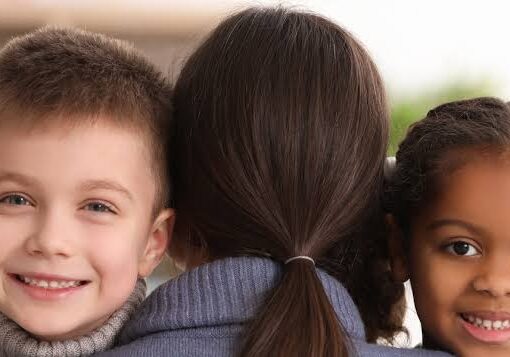A converted event occurs when a pre-trial hearing or proceeding takes on a different nature or purpose due to changing circumstances. Let’s delve into the definition of converted events
What Is A Converted Event?
“Converted Event” in a legal context refers to a situation where a pre-trial hearing or proceeding, which was initially scheduled for one purpose, evolves or transforms into a different type of hearing due to changing circumstances or the emergence of new legal issues. This term is commonly used in both civil and criminal cases and highlights the flexibility of the legal process to adapt to unfolding developments.
In essence, a converted event occurs when the nature and scope of a hearing or proceeding expand beyond its original intent. This can transpire for a variety of reasons, such as the introduction of new evidence, the emergence of previously unknown facts, or the identification of additional legal issues. When such developments arise, the court has the authority to modify the purpose of the hearing to accommodate the new information and ensure that justice is served.
For example, in a civil case where a pre-trial hearing was initially meant to address a motion for summary judgment, if during the proceedings, a crucial piece of evidence surfaces that wasn’t previously disclosed, the court may decide to convert the hearing into a full-fledged trial to allow both parties to present their arguments and counterarguments regarding this new evidence. This change in the nature of the hearing reflects the court’s commitment to fairness and the pursuit of truth.
It’s important to note that the decision to convert an event is usually at the discretion of the presiding judge, who carefully weighs the impact of the new developments on the case. The judge considers factors such as the relevance of the new evidence or issues, the potential for prejudice to either party, and the overall interests of justice. The judge also ensures that all parties involved are given a reasonable opportunity to prepare and respond to the converted event, safeguarding their rights to due process.
In conclusion, a converted event in a legal context refers to a transformation of a pre-trial hearing or proceeding due to the emergence of new evidence or legal issues. This adaptability of the legal process underscores the court’s commitment to fairness, truth-seeking, and the effective administration of justice. The decision to convert an event rests with the presiding judge, who carefully considers the impact of the changes on all parties involved while upholding the principles of due process.
Factors That Cause Converted Events
A converted event occurs when a pre-trial hearing or proceeding takes on a different nature or purpose due to changing circumstances. Let’s delve into the five key factors that can trigger such conversions:
1. Newly Discovered Evidence:
One of the most common factors leading to a converted event is the introduction of previously undisclosed or newly discovered evidence. If, during the course of a hearing or proceeding, one party presents evidence that was previously unknown to the other party or the court, this can prompt the court to convert the event. The court’s aim is to ensure that both parties have a fair opportunity to address this new evidence and that the truth is thoroughly examined.
2. Emergence of Additional Legal Issues:
Sometimes, as a case unfolds, new legal issues may come to light that were not initially anticipated. These additional legal issues can significantly impact the direction of the case. For instance, in a contract dispute case, a seemingly straightforward breach of contract claim might reveal potential issues of fraud or misrepresentation, leading the court to convert the event to accommodate these new complexities.
3. Change in Case Dynamics:
Changes in the dynamics between the parties involved can also trigger a converted event. This could occur if the plaintiff amends their claims or if the parties decide to pursue alternative dispute resolution methods, such as mediation or settlement negotiations, during a pre-trial hearing. The court might decide to convert the event to allow for these new developments to be properly addressed and resolved.
4. Legal Precedents and Rulings:
Decisions made in other cases, either within the same jurisdiction or in higher courts, can have an impact on the proceedings of a current case. If a recent legal precedent or ruling significantly affects the interpretation of the law relevant to the case, the court might choose to convert the event to explore the implications of this new legal perspective.
5. Complexity and Unforeseen Challenges:
Some cases may start out straightforward but unravel into greater complexity as more information is revealed. Unforeseen challenges might arise, such as the sudden unavailability of a key witness or issues with procedural fairness. In such situations, the court may deem it necessary to convert the event to ensure that all parties have a fair opportunity to present their case and address the evolving complexities.
Ultimately, the decision to convert an event rests with the presiding judge, who carefully evaluates the impact of these factors on the proceedings. The judge aims to uphold principles of fairness, due process, and the pursuit of truth. By recognizing and adapting to these factors, the court ensures that justice is served and that all parties have a meaningful opportunity to present their case in light of changing circumstances.
RELATED :
Booking Type VC or PC: What it means and other FAQs?
Does An Mta Ticket Get Posted On Your Criminal Record? All You Need To Know
Meaning of TBUT or DISP Auto/ Shoplifting / Firearm / All others and FAQs
Frequently Asked Questions
1. What role does the discretion of the judge play in converting an event?
The judge’s discretion is pivotal in determining whether to convert an event. Judges evaluate factors like the relevance of new evidence or issues, potential prejudice to parties, and the overall interests of justice. Their decision is rooted in maintaining a fair and impartial legal process. By exercising this discretion, judges ensure that converted events are driven by a commitment to fairness and equitable treatment of all parties involved.
2. Can either party request a converted event?
Yes, both parties can request a converted event if they believe that new evidence or unforeseen legal issues warrant a change in the nature of the proceedings. Such requests are typically made through formal motions presented to the court. While the court takes these requests into consideration, the final decision rests with the judge, who assesses their validity and relevance to the case.
3. How does converting an event affect the timeline of the legal process?
Converting an event can impact the timeline of the legal process. Depending on the nature of the conversion, the proceedings may be extended to accommodate the new developments. This extension is meant to provide all parties with a reasonable opportunity to address the changes. While conversions can introduce delays, they are essential to maintaining a just and thorough legal process that accounts for evolving circumstances.
4. What precautions are taken to prevent unfair surprise during converted events?
To prevent unfair surprises, courts typically require parties to provide advance notice of any new evidence or issues they intend to introduce. This practice allows opposing parties to adequately prepare their responses and ensure a level playing field. Additionally, judges may enforce strict disclosure rules and deadlines to promote transparency and prevent any last-minute attempts to manipulate the proceedings to gain an unfair advantage.
5. Are there any situations where converted events are not allowed?
Converted events are generally allowed in situations where new evidence or issues emerge that warrant a change in the proceedings. However, courts may place limitations on conversions that substantially prejudice one party or disrupt the established legal process. The guiding principle is to balance the need for flexibility with the need to maintain a fair and orderly legal system. As a result, conversions are evaluated on a case-by-case basis, taking into account the unique circumstances of each situation.
In conclusion, the concept of “Converted Event” in a court setting reflects the adaptability of the legal process to changing circumstances. Judges play a key role in evaluating factors such as new evidence, emerging legal issues, and the overall fairness of the proceedings when deciding to convert an event. Both parties can request a conversion, and precautions are taken to ensure transparency, fairness, and the prevention of unfair surprises. While conversions can affect the timeline of the legal process, they are essential to upholding principles of justice and providing all parties with an equitable opportunity to present their case.
Last updated on: April 26, 2024




